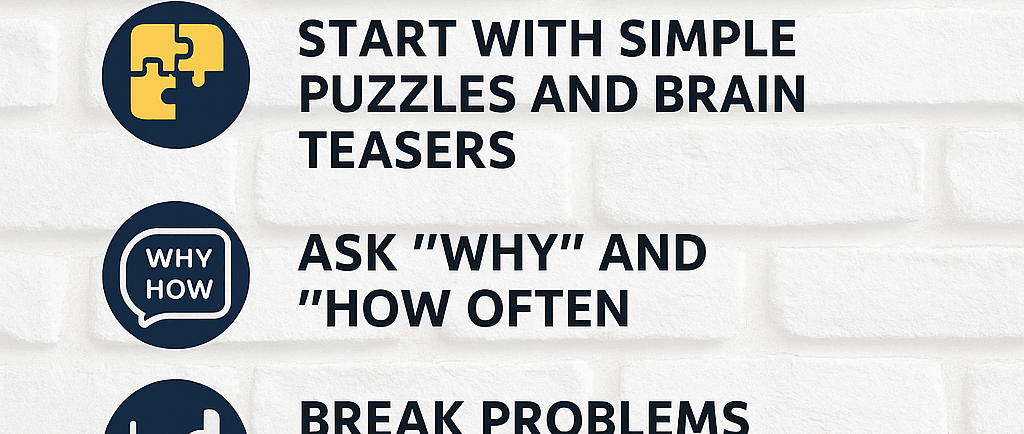How to improve analytical thinking: A Guide for students
.


In a world driven by information, the ability to think analytically is one of the most valuable skills you can develop. Whether you’re solving a complex problem, making a decision, or planning a project, analytical thinking helps you break down information, identify patterns, and arrive at logical conclusions. The good news? It’s not a talent you’re simply born with—it’s a skill you can develop with consistent practice.
1.Understand What Analytical Thinking Means
Analytical thinking involves examining information, breaking it into parts, identifying relationships, and interpreting what those relationships mean. It combines logic, reasoning, observation, and problem-solving. Think of it as learning to think like a detective—curious, skeptical, and methodical
2.Start with Simple Puzzles and Brain Teasers
One of the easiest and most enjoyable ways to train your brain is by engaging in logic puzzles, Sudoku, crosswords, and riddles. These activities strengthen your ability to spot patterns and think systematically. Even playing chess or strategic board games can enhance your cognitive skills.
3.Ask “Why” and “How” Often
Curiosity is the fuel for analytical thinking. Instead of accepting things at face value, ask:
Why did this happen?
How does this system work?
What are the causes and effects?
For example, if you read about a new technology or a news event, try to uncover the layers behind it—its origin, the data supporting it, and possible outcomes.
4.Break Problems Into Parts
When facing a complex issue, don’t try to solve everything at once. Break it down:
Identify the main problem.
List all possible causes.
Examine available data.
Test potential solutions.
This step-by-step approach helps reduce overwhelm and provides clarity, enabling better decision-making.
5.Read Widely and Take Notes
Reading books—especially those related to science, economics, psychology, or logic—improves the way you understand systems and human behavior. When you read, underline key points and summarize them in your own words. This active processing boosts retention and sharpens your ability to evaluate and compare information.
6. Engage in Reflective Thinking
At the end of each day or week, ask yourself:
What did I do that required analytical thinking?
What worked and what didn’t?
How could I approach it better next time?
This habit of reflection not only reinforces learning but helps you apply past experiences to new situations.
7.Discuss and Debate Respectfully
Conversations with people who have different viewpoints can stretch your thinking. Try to understand their reasoning, analyze their arguments, and present your own with logic and facts. This builds your confidence in processing opposing information without becoming defensive.
Final Thoughts
Analytical thinking is not reserved for scientists or mathematicians—it’s a daily tool that empowers better decisions, deeper learning, and personal growth. Like any muscle, the more you use your mind analytically, the sharper it becomes. Start small, be curious, and soon, you’ll see the world through a clearer, more strategic lens.
